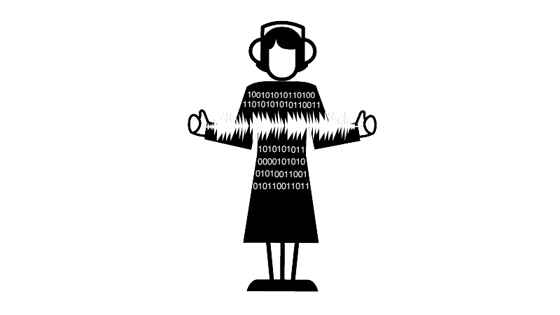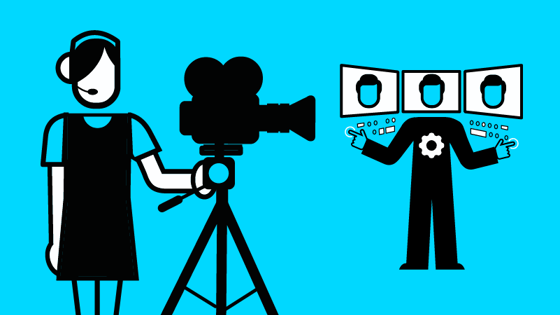Games
Audio programmer
Also known as: Audio developer, Audio engineer, Audio tools programmer, Game audio implementer

What does an audio programmer do?
Audio programmers write the code that makes games sound awesome. The sound of a game, both the sound effects and music, are integral to the gameplay experience. Audio programmers write the script that determines functions like volume and makes it possible for effects like gunshot or footsteps to be triggered by the player’s actions.
They are also responsible for developing the software which integrates the audio files into the game. Having designed and created new audio tools, they support programmers and designers in using them. They are also responsible for testing and debugging the audio code.
Watch and read
- What is audio programming? An introduction
- Career spotlight: game audio implementer - dBs | The sound & music institute
What’s an audio programmer good at?
- Maths and physics: understand the underlying principles of music and wave theory
- Audio concepts: understand mixing, compression and reverb and so on
- Programming: write strong code that’s easily understood by fellow coders
- Innovation: imagine how the audio could be improved and develop the solution
- Knowledge of games engines and platforms: understand the constraints of games consoles, PCs, handhelds and mobiles
- Communication: share ideas with the sound team and other programmers
Who does an audio programmer work with?
Audio programmers works closely with designers, sound engineers and composers. They report to the lead programmer.
How do you become an audio programmer?
Most audio programmers have at least two years’ experience in the games industry. This is not an entry level role. Having said that, you can impress employers by showing them what you are capable of making.
At school or college:
If you want to go to university:
Take any of the following A-levels, Highers or Level 3 BTECs:
- Maths
- Music
- Physics
- Computer Science
- BTEC Extended Diploma in Creative Digital Media Production
- BTEC Diploma/Extended Diploma in Computing
If you want to go straight into a job or apprenticeship:
The following Level 3 vocational qualifications would be relevant:
- Aim Awards Diploma/ Extended Diploma in Games Animation and VFX
- BTEC Diploma in Sound Production
- BTEC Diploma in Digital Games Design and Development
- AQA Technical Level Entertainment Technology: Video Games Art and Design/Design Production
- OCR Technical Diploma in Digital Media (Digital Content for Interactive Media)
- OCR Technical Diploma in Digital Media (Moving Image & Audio Production)
- UAL Extended Diploma in Creative Media Production and Technology
- UAL Diploma in Creative Media Production and Technology
- AQA Technical Level IT: Programming
- OCR Technical Diploma in IT (Digital Software Practitioner)
- PTEC Diploma in Computing for Creative Industries
Build a portfolio:
Create work that demonstrates your technical knowledge of the principles of sound and audio manipulation, and as well as your skills as a programmer. This is what will impress future employers. Go to build your sound portfolio and build your games portfolio to learn how.
Start modding:
Create levels of a game using software provided by the publishers.
Get a degree:
Most people in the games industry have degrees. An increasing number of programmers have master’s degrees too. Get a degree in physics, computer science, computer programming or maths. Or have a look at ScreenSkills’ list of recommended courses in games and select one in programming. We recognise courses with our ScreenSkills Select award where they offer training in the relevant software, dedicated time to building a portfolio and have strong links with the games industry.
Network:
Get to know people in the games industry by attending events, including games conferences and expos. Meet professionals and ask them questions about their work, while demonstrating interest and knowledge in the industry. Offer to provide them with your professional contact details and try to stay in touch with them. Go to how to network well to learn how to do this.
Take a course to supplement your programming skills:
A short course in audio engineering or music production is a useful addition.
Search for jobs:
If you already have experience as a games programmer or artist, use the UK Games Map to find out if there are games companies near you. Then go to their websites directly and check out their open roles.
You might also be interested in…
Being a music composer or sound designer in the games industry. You might also be interested in being a sound mixer or music editor in the film and TV drama industries, or a sound designer or composer in the animation industry.






